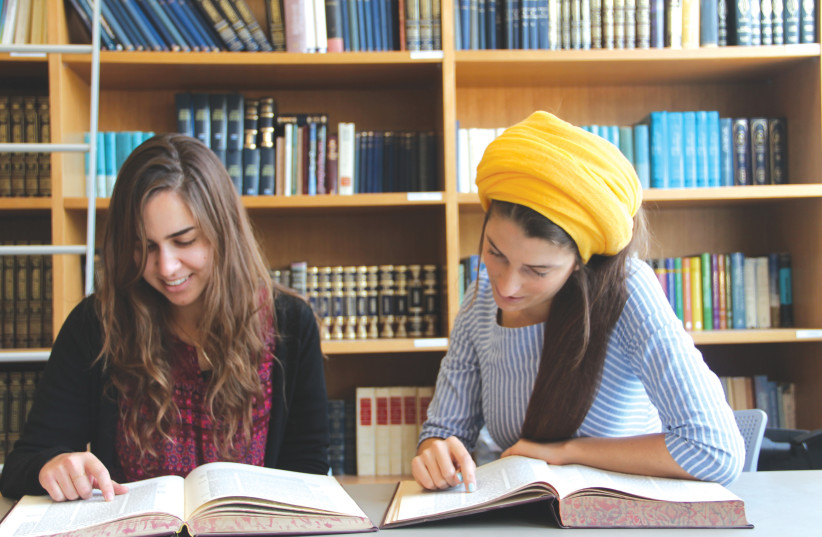Twenty-four thousand students of the second-century sage Rabbi Akiva died during the days between Passover and Shavuot – known as the days of the Counting of the Omer. In 2021, the people of Israel experienced a calamity in which 45 people died and approximately 150 others were injured in a crowd crush on Mount Meron on the 33rd day of the Omer.
In her newly translated book Days Are Coming, Sivan Rahav-Meir quotes from a talk that Rabbanit Chana Henkin gave during the shiva for the victims of the Meron tragedy. “Rabbi Akiva lost 24,000 students. All of his students died. What did he do? He started again, with only five students.... Rabbi Akiva teaches us to rise up from every situation, every mourning, every loss. After my son, Rav Eitam, was killed in a terrorist attack along with his wife, Naama, I told my students that no one had ever promised me that God was an ATM.... You don’t press buttons and get what you want. You do need to always look at the gifts that you are left with. In our case: Rav Eitam and Naama’s four children, who survived the attack.”
“Rabbi Akiva lost 24,000 students. All of his students died. What did he do? He started again, with only five students.... Rabbi Akiva teaches us to rise up from every situation, every mourning, every loss. After my son, Rav Eitam, was killed in a terrorist attack along with his wife, Naama, I told my students that no one had ever promised me that God was an ATM.... You don’t press buttons and get what you want. You do need to always look at the gifts that you are left with. In our case: Rav Eitam and Naama’s four children, who survived the attack.”
Chana Henkin
This passage in many ways typifies what readers will find in this welcome new exploration of the meaning of the Jewish calendar.
A new exploration of meaning in the Jewish calendar
Throughout the book, Rahav-Meir’s voice is in the background. She collects and highlights the voices of others: traditional sources, contemporary rabbinic figures and popular Israeli personalities.
While there is no feminist agenda, this reader could not but be struck by the presence of many strong female figures alongside the male-dominated voices of the classic texts and Orthodox rabbis. The contributions of Rabbanit Chana Henkin mentioned above, Rabbanit Yemima Mizrachi, Nehama Leibowitz, Miriam Peretz, Yael Ziegler and Naomi Shemer stand out in particular. Of course, the fact that the book is authored by Rahav-Meir is in itself significant.

This book can be seen as an expression of the sea change in advanced women’s Torah education that has taken place over the past two centuries. Unlike other works that seek to spotlight these contributions, here they are integrated naturally and casually into collective Jewish wisdom.
ANOTHER UNIQUE aspect of the book, which reflects its context, is the presence of the Israeli story among its pages. Bereavement for those lost to the conflict (like the loss of R. Eitam and Naama Henkin), Aviv Geffen’s dedication of a song to the haredi community of Bnei Brak, broadcasts on Holocaust Remembrance Day and Remembrance Day for the Fallen of Israel’s Wars, legends about Israeli spy Eli Cohen, stories of aliyah, and statements of Israeli politicians are all interwoven into the exposition of the book.
As much as the content that Rahav-Meir draws upon is Israeli, the Jewish calendar that she addresses is a poignantly Israeli one. That means, of course, that Holocaust Remembrance Day, Remembrance Day for the Fallen of Israel’s Wars, Independence Day and Jerusalem Day are all on the book’s agenda, but we also are exposed to Yom Kaddish Haklali, which was proclaimed by Israel’s Chief Rabbinate as a day to recite Kaddish for those murdered in the Holocaust, and to the seventh of Adar as a day to remember all those IDF soldiers who never received a proper burial.
The anniversaries of the deaths of figures who are significant to the Israeli story, like Rabbi Abraham Isaac Kook and Rabbi Ovadia Yosef, are covered.
The book reflects the ingathering of the exiles by covering dates important to the broad diversity of Jewish subcommunities that have made Israel their home. We encounter the Sigd of the Ethiopian community; the Chabad celebration of the 19th of Kislev as the anniversary of the release of Rabbi Shneur Zalman of Liadi from prison; the Moroccan Mimouna on the day after Passover; and the return of the Torah scrolls to the ark on the seventh of Heshvan among the Tunisian Jews of Djerba.
The book goes so far as to include milestones on the calendar that are not inherently Jewish but are nevertheless part of Israeli life, such as International Women’s Day, the first day of school, and report card day.
Throughout all of her treatment of the Jewish Israeli calendar in this broad sense, Rahav-Meir presents feel-good messages that uplift, inspire hope, encourage and seek to build character. In unpacking our calendar, she has combined the folksy inspiration of the Chicken Soup for the Soul series, the deep wisdom of the three-millennia-old Torah tradition, and the story of the modern return to Israel.
Through the lines of this book, Rahav-Meir calls upon us to infuse our days with the sanctity, wisdom and heroism of the Jewish tradition and the Israeli story. One can surely look forward to days that are inspired by Days Are Coming.
Days Are Coming
By Sivan Rahav-Meir
Maggid
270 pages; $24.95
